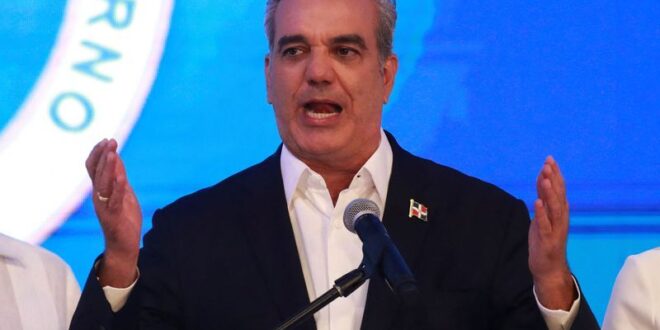(Reuters) – The Dominican Republic’s Luis Abinader, who is set for a second term after winning a preliminary 58.85% in Sunday’s vote, inherited a nightmare scenario when he first took office as president in August 2020.
During the COVID-19 pandemic, the Caribbean island nation’s tally of cases had soared to more than 86,000, all but shutting down the region’s top tourism destination, and tanking its economy.
Now the economy is booming, with a record 10.8 million tourists visiting last year, and growth expected to hit 5% in 2024, the World Bank says, among the highest in Latin America. Poverty is creeping down and the quality of education is rising.
Abinader’s success guiding his nation through the unprecedented global crisis was the foundation for his runaway election victory, cementing his position as one of the most popular politicians in the country, and the Americas.
“Before 2020, Dominicans believed that politicians got to power only to enrich themselves at the expense of the suffering of the people,” said Jacqueline Jimenez, co-editor of the book, “Dominican Politics in the 21st Century.”
“Now, through this new government, that mentality has been changing.”
The 56-year-old Abinader has also made it a priority to clean up the country’s notoriously dirty politics.
Prior to his first term in office, tens of thousands of Dominicans took to the streets in the biggest demonstrations of anger over corruption in decades, following a landmark bribery case against top officials.
On his first day in office, Abinader picked as attorney-general Miriam German Brito, a former supreme court justice.
One year later, the European Union awarded her its Human Rights Prize for her “fight against corruption and in favor of transparency and justice.”
Abinader’s administration has also strengthened electoral laws, winning accolades in April from the Organization of American States for changes that strengthened transparency and equity in campaign financing.
But more remains to be done in Abinader’s second term, even after his concrete steps to strengthen the country’s still fledgling institutions, said Dominican political strategist Geovanny Vicente-Romero.
“Abinader’s government has faced criticism for not being able, or willing, to bring his own people to justice, especially those from his inner circle,” the Washington-based Vicente-Romero, who knows Abinader personally, told Reuters.
“For Abinader to seal his legacy against corruption, he will have to look inside to really achieve a lasting breakthrough.”
Political rivals also allege the Tesla-driving Abinader, a wealthy former businessman whose declared net worth of $76 million puts him among Latin America’s richest leaders, is perhaps not as squeaky-clean as he has sought to convey.
A group of news organisations led by the International Consortium of Investigative Journalists (ICIJ) found in 2021 that Abinader, who is also the wealthiest public official in the Dominican Republic, held at least seven offshore companies – the details of which were murky – when he was elected.
Abinader, who was not convicted of any crime, said he had created the offshore companies at a time when the country’s corporations law was considered outdated.
Since the start of his administration, he has donated his presidential salary to social programs.
Since Dominican electoral law limits Abinader to two terms as president, his legacy will also depend on his handling of fallout from the still exploding crisis in neighboring Haiti.
Abinader donned a hard hat in 2022 and helped pour the first concrete for a much-publicized border wall with Haiti – touted by businessman Elon Musk on social media – and he has pushed for the deportation of illegal migrants.
“Our slogan from now on will be: Either we fight together to save Haiti, or we will fight alone to protect the Dominican Republic!” Abinader told the United Nations in February.
That stance gives him yet another domestic political advantage, says Eric Farnsworth, a Latin America expert at the Council of the Americas and Americas Society.
“He faces some criticism … outside the DR but not much internally, defanging Haiti as a political issue,” Farnsworth said.
(Reporting by Dave Sherwood; Editing by Sandra Maler and Clarence Fernandez)
 BeritaKini.biz Berita Viral Terkini di Malaysia
BeritaKini.biz Berita Viral Terkini di Malaysia





